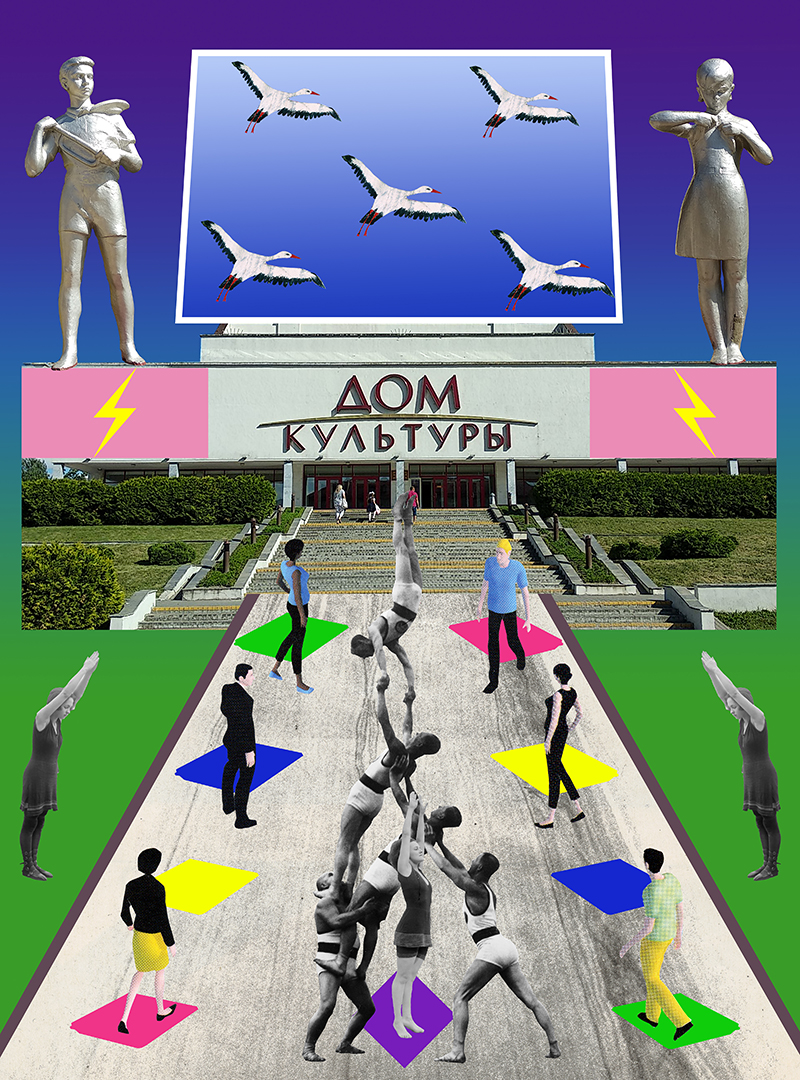Legal Issues

A Monopoly on suffering, or why Belarusians have so much hatred towards other refugees
Nasta Zakharevich •
– “What do I do?” – asked a young man from Petersburg, impatiently. – What do you mean what should you do? If it’s summer – wash berries and make jam out of them; if it’s winter – drink tea with that jam. Vasily Rozanov National plans established for the next six months are usually […]

BELARUSIAN ENTROPY: AS IRREVERSIBLE AS IT IS HARD TO PUT THE TOOTHPASTE BACK INTO A TUBE
Nadya Sayapina •
“My personal story is a simple and, alas, a widespread example of the regime repressions, described by the new expression “If you were not in prison, then you are not a Belarusian”. I was sentenced to 15 days for participation in an unauthorized event (Article 23.34). … My imprisonment led to an acquaintance with women of different ages, characters, spheres of activity and interests, forms and manifestations of their civil position.”

PRODUCTION DRAMA: LABOR AND LAZINESS OF ARTIST IN BELARUS
Aleksei Borisionok •
In this essay, curator and writer Aleksei Borisionok addresses labor structures and working conditions within the artistic field of the USSR and Eastern Europe, and continues with a closer look at Belarus, focusing on its outrageous “parasitism tax” and the artistic reactions to it.

CURATORS, LIBRARIANS, SOCIAL PARASITES: OUR LEGAL STATUS AS CLARIFIED BY A LAWYER
Alena Chekhovich •
Alena Chekhovich, a lawyer from a Belarusian human rights organization Human Constanta, examines the Culture Code in detail, discussing in simple terms the concepts of cultural and creative workers, registration and taxation of the activities of creative workers, the process of obtaining a certificate of a creative worker and much more.

IN SEARCH OF A STATUS
Uladzimir Hramovich •
Belarusian artist Uladzimir Hramovich talks about his experience in obtaining the official status of a cultural worker – a forced reaction to the Belarusian law on “not employed in the economy”. The artist describes the process of collecting documents for the commission, the committee meeting at the Ministry of Culture and shares his reflections upon the state of Belarusian contemporary art as well as his civic position.

DESIGNING THE PARALLEL SOCIETY IN BELARUS: ADDRESSING THE DICHOTOMY OF STABILITY AND UNCERTAINTY
Elisabeth Kovtiak •
Independent researcher Elisabeth Kovtiak presents the results of the workshop of the STATUS project, Designing the Parallel Society, which was led by two Swedish artists John Huntington and Lars Noväng in Minsk. As a response to the problematic aspects of the Ministry of Culture and the KGB, and a wider problem within Belarusian official discourse, the workshop team invented the Ministry of Uncertainty – a space to train one’s ability to become an active member of society and to enjoy it.

THE CONGRESS-PERFORMANCE OF CULTURAL WORKERS
November 23, 2019 in Minsk will host the Congress-performance of cultural workers initiated by the members and participants of the project “STATUS: The role of artists in changing society” (Belarus and Sweden). During the one-day event, there will be discussions and conversations, workshops and performances, as well as presentations of the artworks related to the issues of working conditions and legal status of artists in Belarus and Sweden, defending rights, equality, gender and age. Congress invites professionals from the field of culture and arts, as well as anyone interested in the stated topics.

THE TRIAL. MINISTRY OF CULTURE AGAINST ART WORKERS
Anton Barysenka •
In early 2019, as a response to a request made by the Belarusian Union of Designers, the Belarusian Ministry of Culture officially proclaimed ‘exhibition activities’ (or, in other words, exhibition-making) neither an intellectual, nor an artistic practice, provoking public outrage and mockery. Using this episode as a case study, researcher Anton Barysenka reflects upon the current status of an artworker in Belarus, and comments on the structural decay and tensions within current Belarusian culture politics.